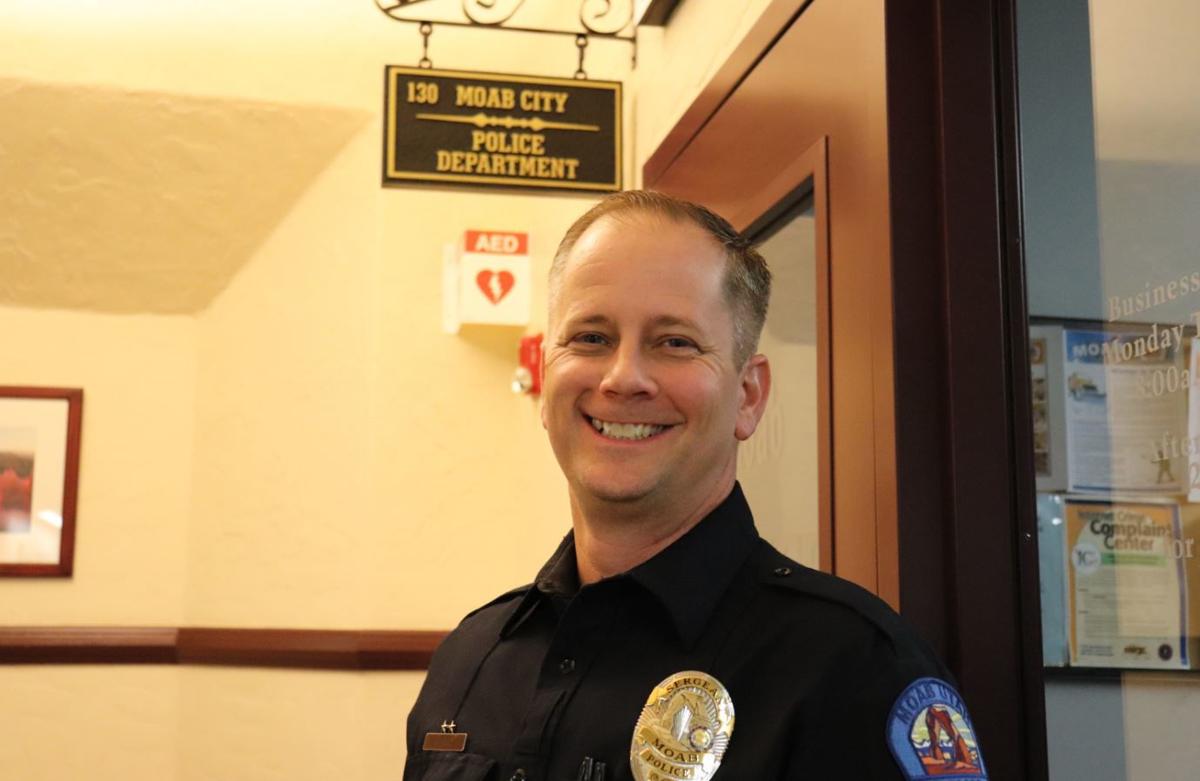The chief of the Moab Police Department issued a rebuke to public comments by the Grand County Attorney on possible gender bias in law enforcement.
In an interview recorded on June 8 with Molly Marcello, KZMU Radio news and current affairs director, Grand County Attorney Christina Sloan discussed recent protests against police abuses.
Sloan expressed her belief that local law enforcement does not have a use-of-force or racial profiling problem, but mentioned that she was concerned with implicit bias in domestic violence and sexual harassment cases.
“You will see, for example, police get called out to a domestic violence incident. And within one minute, the man’s in handcuffs,” said Sloan in the interview.
“Well, they haven’t even come in to survey – is the man actually the aggressor or not? They don’t wait. And then they don’t even do a full investigation,” said Sloan, referring to law enforcement.
“They just listened to the woman because of bias and they don’t see it that way at all,” she said, indicating that her office was “pushing” for an unspecified change she thought would be appropriate to address the issue.
Sloan also mentioned “a sexual harassment case I think was horribly messed up at the county,” without specifying the case or what her objections to the investigation were.
On June 23, the Moab Police Department’s official Facebook page posted a statement attributed directly to MPD Chief Bret Edge.
Edge’s statement expresses dismay that Sloan criticized local law enforcement policies publicly without bringing the issue to the police department to discuss.
In addition, Sloan’s statement was “wholly inaccurate” from the position of the Moab Police Department, Edge stated.
“While it is true that males are arrested for domestic violence far more often than females, it most certainly isn’t because of an officer’s gender bias,” Edge wrote, pointing to extensive statistics from multiple agencies including the U.S. Department of Justice that indicated that the majority of domestic violence was committed against women.
He also pointed out that despite those statistics, a 2008 National Institute of Justice study found that “men and women were equally likely to be arrested in incidents involving intimate partner violence,” contrary to Sloan’s belief. Edge did not cite any local statistics on domestic violence or arrest rates in the Moab area.
“Moab City Police Department officers do not rush to arrest males in domestic violence incidents. Our officers weigh the facts of each case and make arrests based on the totality of the situation,” Edge wrote. He noted that police often have prior knowledge and experience with individuals in abusive relationships and asserted that only after full review do officers “make a determination based upon all of the information they’ve gathered.”
“Yes, there is and always will be room for improvement. Sometimes, we can do better investigations. Sometimes, we can write better reports. Cops are humans, and humans make mistakes no matter how much training or experience they have, but our officers give their all to this community,” wrote Edge.
“They absolutely do not exhibit biases in their work,” he asserted. Edge’s statement does not address racial bias, police abuse, the difficulty removing police officers or any of the other issues discussed by Sloan in the KZMU interview.
Elsewhere in the KZMU interview, Sloan also commented that there was “a big disconnect at the city about the relationship of me and my office and MPD,” and expressed skepticism of the joint statement by the MPD and the City of Moab in support of the Black Lives Matter movement.
“I hope that it’s not just a media stunt,” she said, indicating that she advised the Grand County Council not to pass a similar statement but instead hold an open meeting with law enforcement and community members.
When informed of Edge’s public comment by the Moab Sun News, Sloan said that she would decline to comment as “any response will distract from the conversation we should be having on race and justice.”
Criticisms center around possible bias




